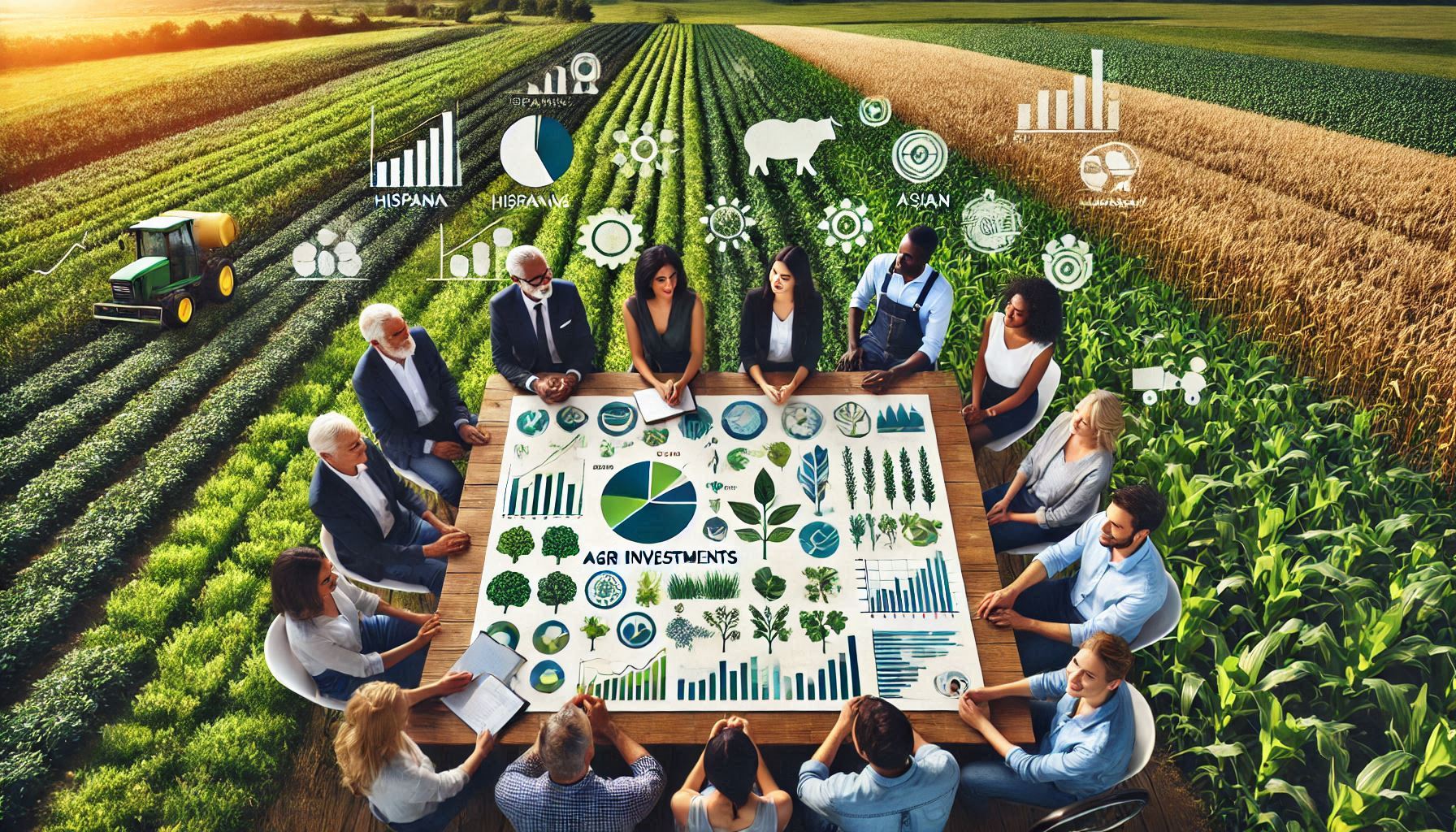Agriculture Investments: A Growing Opportunity
Introduction
Agriculture investments are gaining attention as a resilient and profitable asset class. With the global population projected to exceed 9 billion by 2050, the demand for food, fiber, and biofuel continues to rise. Investing in agriculture offers diversification, stable returns, and the opportunity to contribute to global food security. This guide explores the types of agricultural investments, their benefits and risks, and strategies for success in this burgeoning sector.
What are Agriculture Investments?
Agriculture investments encompass financial commitments in the farming, production, processing, and distribution of agricultural products. These investments can take various forms, such as direct land ownership, agribusiness stocks, or agricultural technology. Key sectors include:
- Crops: Corn, wheat, soybeans, rice, and other staple foods.
- Livestock: Cattle, poultry, and aquaculture.
- Agricultural Technology: Innovations in precision farming, irrigation, and crop genetics.
- Agri-Inputs: Fertilizers, pesticides, and machinery.
- Processing and Distribution: Food processing companies and supply chain logistics.
Types of Agriculture Investments
- Farmland:
- Direct ownership of arable land.
- Generates income through leasing or crop production.
- Agribusiness Stocks:
- Shares in companies involved in agriculture, such as John Deere, Archer Daniels Midland, or Bayer.
- Exchange-Traded Funds (ETFs):
- Funds tracking the performance of agricultural commodities or agribusiness indices.
- Commodities:
- Futures contracts or spot market investments in crops and livestock.
- Agriculture REITs (Real Estate Investment Trusts):
- Investments in farmland or agricultural facilities without direct ownership.
- Venture Capital in Agri-Tech:
- Supporting startups focused on sustainable farming technologies.
- Impact Investments:
- Financing projects aimed at improving agricultural productivity and sustainability in developing regions.
Benefits of Agriculture Investments
- Portfolio Diversification:
- Reduces overall investment risk by adding non-correlated assets.
- Inflation Hedge:
- Agricultural commodities often rise in value during inflationary periods.
- Stable Returns:
- Farmland and agriculture-related assets provide consistent income over time.
- Global Demand Growth:
- Rising population and changing dietary preferences drive long-term demand.
- Sustainability Opportunities:
- Investments in sustainable agriculture support environmental and social goals.
Risks of Agriculture Investments
- Weather Dependence:
- Unpredictable weather patterns and climate change can impact yields.
- Market Volatility:
- Prices of agricultural commodities are subject to fluctuations due to supply-demand dynamics.
- Regulatory Challenges:
- Policies related to land use, trade tariffs, and subsidies can affect profitability.
- Pest and Disease Risks:
- Crops and livestock are vulnerable to diseases and infestations.
- Capital Intensity:
- Some agriculture investments, like farmland, require substantial initial capital.
Trends in Agriculture Investments
- Precision Agriculture:
- Use of drones, sensors, and AI to enhance productivity and reduce waste.
- Sustainable Farming:
- Practices that conserve resources and promote biodiversity.
- Vertical Farming:
- Urban farming solutions that grow crops in controlled, indoor environments.
- Alternative Proteins:
- Investments in plant-based meats and lab-grown proteins.
- Blockchain in Agriculture:
- Improving supply chain transparency and reducing food fraud.
- Agroforestry:
- Combining agriculture with tree planting to enhance land use and carbon sequestration.
How to Invest in Agriculture
- Research the Sector:
- Understand market dynamics, emerging trends, and key players.
- Set Clear Goals:
- Define your investment objectives, risk tolerance, and time horizon.
- Choose an Investment Vehicle:
- Decide between direct investments, stocks, ETFs, or venture capital.
- Diversify Your Portfolio:
- Spread investments across different sub-sectors to mitigate risks.
- Monitor External Factors:
- Stay updated on weather patterns, geopolitical events, and regulatory changes.
- Partner with Experts:
- Work with advisors or firms specializing in agriculture investments.
Case Studies in Agriculture Investments
- The Rise of Farmland REITs:
- Companies like Farmland Partners and Gladstone Land have made farmland accessible to retail investors.
- Agri-Tech Startups:
- Companies like Indigo Agriculture and Plenty have attracted significant venture capital for their innovative approaches to farming.
- Impact of Climate Change:
- Investors focusing on drought-resistant crops and water-efficient technologies are addressing climate challenges while generating returns.
Conclusion
Agriculture investments offer a compelling opportunity to combine financial returns with societal impact. As global food demand grows and environmental concerns intensify, the sector presents innovative avenues for sustainable growth. Whether through farmland ownership, agribusiness stocks, or venture capital in agri-tech, investors can play a pivotal role in shaping the future of food and farming. However, success requires diligent research, risk management, and an understanding of the unique dynamics of agriculture markets.









